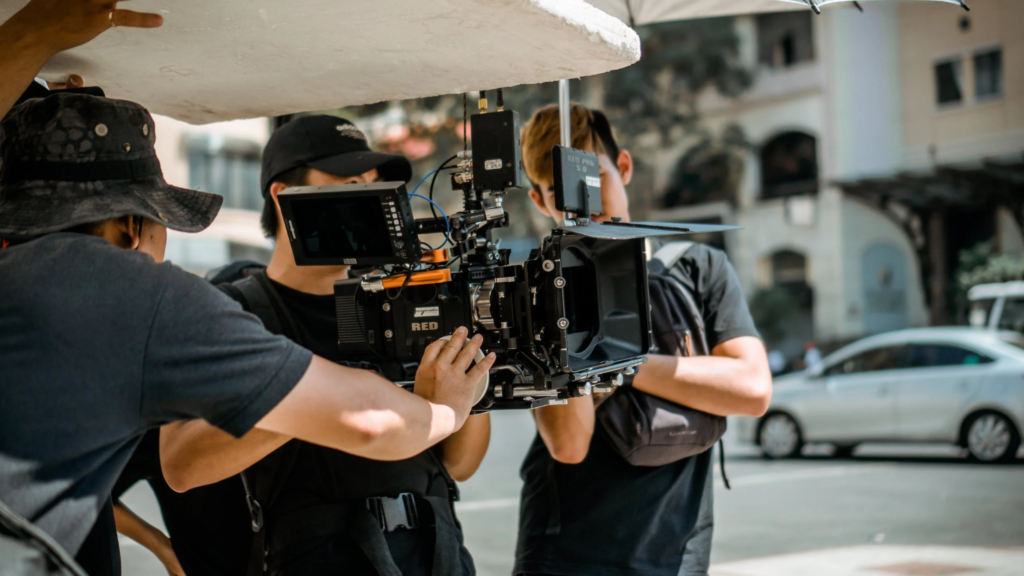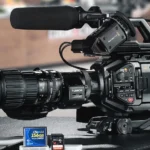What You Need to Become a Successful Videographer
To become a successful videographer, several key elements must be in place. Here’s a comprehensive guide on what you need to consider:
1. Essential Equipment
- Camera: Invest in a high-quality camera suited for your needs, whether it’s a DSLR, mirrorless, or cinema camera. Consider factors like resolution, frame rate, and low-light performance.
- Lenses: Different lenses offer varying perspectives and are essential for achieving specific effects, such as wide-angle or telephoto shots.
- Tripod: A sturdy tripod is crucial for stable shots and smooth panning.
- Microphones: Good audio quality is as important as video quality. Use external microphones for clear sound, whether it’s a shotgun mic, lapel mic, or handheld mic.
- Lighting Equipment: Proper lighting can significantly enhance your video quality. Consider softboxes, LED lights, and reflectors.
- Editing Software: Professional editing software like Adobe Premiere Pro, Final Cut Pro, or DaVinci Resolve is necessary for post-production.
2. Technical Skills
- Camera Operation: Understand how to operate your camera, including settings like aperture, shutter speed, and ISO.
- Lighting Techniques: Learn how to light your scenes effectively to achieve the desired mood and clarity.
- Audio Recording: Know how to capture high-quality audio and manage sound levels.
- Editing: Develop proficiency in video editing, including cutting, color correction, sound mixing, and adding effects.
- File Management: Manage and organize your files efficiently to streamline the editing process.

3. Creative Skills
- Storytelling: Ability to create a compelling narrative through visuals and sound.
- Composition: Understand principles of visual composition such as the rule of thirds, leading lines, and framing.
- Color Theory: Use color effectively to enhance the mood and style of your video.
online gambling in canada
Robertdevico.com appears to be a personal website or blog. While visitors explore the content and insights shared, some individuals might also enjoy online entertainment during their personal time. For those in Canada interested in online gaming, exploring options for online gambling in canada can provide a different kind of engaging experience. Discover reputable platforms that offer a variety of games for responsible enjoyment.
Discover Exciting Online Slots Experiences
Robert Devico offers a wealth of insights and expertise, making it easier to explore entertainment options that suit your interests. For those looking to try their luck and enjoy dynamic gameplay, the world of online slots provides endless excitement. Combining engaging stories with thrilling chances to win, these games offer something for everyone. Dive into the action and see where the reels take you today.
4. Planning and Organization
- Pre-Production: Plan your shoots by scripting, storyboarding, and organizing your equipment and crew.
- Scheduling: Manage your time effectively, including planning shoot dates, deadlines, and client meetings.
- Budgeting: Understand and manage your budget for equipment, software, and other expenses.
5. Legal and Business Knowledge
- Contracts: Use contracts to outline the scope of work, payment terms, and usage rights.
- Copyright: Understand copyright laws and ensure you have the rights to use music, footage, and other elements.
- Marketing: Promote your services through a portfolio, website, social media, and networking.
6. Networking and Professional Development
- Portfolio: Build a strong portfolio showcasing your best work.
- Networking: Connect with other professionals in the industry, attend events, and join relevant organizations.
- Continual Learning: Stay updated with the latest trends, technologies, and techniques in videography.
7. Client Relations
- Communication: Maintain clear and professional communication with clients.
- Feedback: Be open to feedback and make revisions as needed to meet client expectations.
- Customer Service: Provide excellent service to build a strong reputation and secure repeat business.
Conclusion
Becoming a successful videographer requires a blend of technical skills, creative vision, and business acumen. By equipping yourself with the right tools, mastering essential skills, and managing your business effectively, you can create compelling videos and build a successful career in videography.



